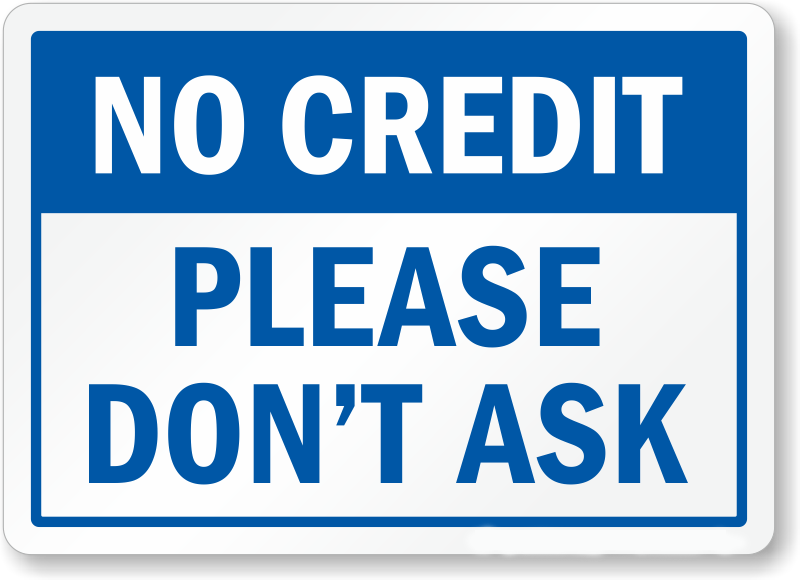We post news and comment on federal criminal justice issues, focused primarily on trial and post-conviction matters, legislative initiatives, and sentencing issues.

QUESTIONS ANYONE?
 Yesterday, we presented a précis on the First Step Act. It didn’t help much. We have logged over 600 emails asking questions about the effect of the First Step Act on the sentences of existing inmates, and they continue to pour in.
Yesterday, we presented a précis on the First Step Act. It didn’t help much. We have logged over 600 emails asking questions about the effect of the First Step Act on the sentences of existing inmates, and they continue to pour in.
Did we not make everything pellucidly clear?
Apparently not. Here are the most popular questions and our answers:
• What sentencing changes are retroactive?
Only people with pre-Fair Sentencing Act crack sentences get retroactive relief. There is no retroactive relief for 18 USC 924(c) stacking, for denial of safety valve, or for 851 sentencing enhancements.
That is not to say that these changes will not come, just like the Fair Sentencing Act – which conservatives would not vote for if it was retroactive – finally became retroactive eight years later. But for now, the people with 924(c) stacked sentences, 851 life and 20-year sentences, and non-safety valve sentences are out of luck.
• How about the seven days extra good time? Is it retroactive?
Yes.
• When will I get the seven days extra good time?
This question is on everyone’s lips. The change in federal inmates’ sentence computation will be performed by the Bureau of Prisons’ Designation and Sentence Computation Center in Grand Prairie, Texas. It should not be difficult to do, and it is hardly as though BOP did not know this was coming. However, the BOP is a bureaucracy, and no one in a bureaucracy is going to be daring or self-starting enough to throw the switch just because some blow-dried President in Washington, D.C., makes something binding federal law.
As of last Friday afternoon, DSCC said it was waiting for guidance from the Dept. of Justice. Inasmuch as Monday and Tuesday were federal holidays, we doubt anything was forthcoming on those days. Whether DSCC is even staffed, due to the partial government shutdown, is not clear.
Yet, the BOP faces liability for holding people past their release dates, and as of last Friday, nearly everyone’s release date changed. We talked to DSCC today, and we were told that it still awaits direction from DOJ, and does not expect that for two to three weeks. No one appears to be in a hurry there.
That’s the long answer. The short answer is that we don’t know.
 • How about programs I have already completed? Are credits retroactive?
• How about programs I have already completed? Are credits retroactive?
No, the credits are not. However, a change in 18 USC 3621(h) provides that “beginning on the date of enactment of this subsection, the Bureau of Prisons may begin to expand any evidence-based recidivism reduction programs and productive activities that exist at a prison as of such date, and may offer to prisoners who successfully participate in such programs and activities the incentives and rewards described in subchapter D.” We cautiously interpret this to mean that the BOP can start giving credits for programs successfully completed at any time after last Friday. This does not require the BOP to do so, but it is out there.
• Are all 924(c) offenses ineligible for earned-time credit?
The Act excludes from earned time credits any offense of conviction under “924(c), relating to unlawful possession or use of a firearm during and in relation to any crime of violence or drug trafficking crime.” We read this to exclude all 924(c)s, whether for a crime of violence or for drugs.
• If you have a 2-level enhancement to your drug conviction for a gun, are you excluded?
No, only a statutory 924(c) conviction excludes you.
 • When is First Step effective?
• When is First Step effective?
Unless a law says otherwise, it is effective when the president signs it. But do not expect miracles. For the earned time credits, the Attorney General has seven months (until late July 2019) to develop the risk assessment system. The BOP then has 180 days to apply the risk assessment system to everyone and identify the programs that it believes will reduce recidivism (by late January 2020). The BOP then has two years (by January 2022) to fully ramp up the system.
During the initial two years of the program, the First Step Act anticipates, there will be more people wanting programs than there will be program space. The BOP is to put people nearest the end of their sentences in the programs first.
The Elderly Home Detention Program has never had a BOP program statement that implemented it, because it was limited in time and location. The BOP will have to develop procedures to process and judge applications. Nothing prevents someone from applying right away – and we recommend using 34 USC 60541(g)(5)(A) as a guide – but do not expect speedy processing.
Our take about compassionate release, however, is that Congress intends that it be implemented immediately. What is more, the BOP has procedures for dealing with compassionate release applications. While its history of doing so is not especially honorable, there is no need for delay while the BOP spools up a program statement on how to process them.
Nothing else in First Step should require any time for implementation. New or renewed requests for home confinement instead of halfway house, transfers to closer-to-home locations and the extra seven days should be immediate. How quickly the BOP updates sentences to account for the extra seven days is anyone’s guess, but a lot of people with short time will need that done immediately. (See answer above)
• How do you file for a reduction in a crack sentence because of FSA retroactivity?
You file a motion under 18 USC 3582(c)(2). You should check with the federal public defender in the district in which you were sentenced. Many court ordered the FPD to represent people eligible under 3582(c)(2).
• Are Guidelines 4B1.1. career offenders excluded from anything under First Step?
No. If you are excluded, it is because of a statute you were convinced of violating.
• If I was convicted of a crime of violence or a sex offense in my past, does that exclude me from getting earned time credits?
No. Only your current offense will exclude you.
• Who is excluded?
We’ll cover that tomorrow.
 • How soon can people start receiving credits?
• How soon can people start receiving credits?
Credits could start to accrue as early as the end of July 2019. The Act anticipates that it could take up to two years for the program to completely spool up, and preference will be given to the people who are short time first. This could mean that people with longer dates will not start getting earned time credits right away.
However, there had been discussion that BOP could be expansive in its interpretation of what constituted programs that lessened recidivism, and it could even include UNICOR employment and adult education classes.
• Did your 21 USC 851 10-year sentence drop to 5 years?
No. Drug sentence enhanced by an 851 notice due to prior drug or state convictions changed, but only natural life (fell to 25 years to life), and 20 years (fell to 15 years to life). Nothing beyond that. And the change is not retroactive.
• If you are excluded from getting earned time credits, how much halfway house/home confinement will you get?
The Second Chance Act still applies, and theoretically, you are entitled to up to 12 months of halfway house. The BOP has been very stingy with halfway house in the last year and a half, however, and no one knows what the BOP will do.
• For EOHD, do you serve two-thirds of your sentence or two-thirds of the time between you start and you get good-time release?
If you got 180 months, for example, you serve 120 months. If you get EOHD, you will be on home confinement for 33 months. At 1053 months, you are released on good-time release.
• If you get 12 months off for RDAP, can you get another 12 months off for earned time credits?
Theoretically, the one does not affect the other. But the BOP has the option to credit you with more halfway house or a shorter sentence, and no one knows how the BOP will decide to apply the earned time credits. No one in Congress discussed this, or, to our knowledge, even thought about it. Some things, like Donald Rumsfeld liked to say, are unknown unknowns.
S.756, First Step Act, passed into law Dec. 21, 2018
– Thomas L. Root

